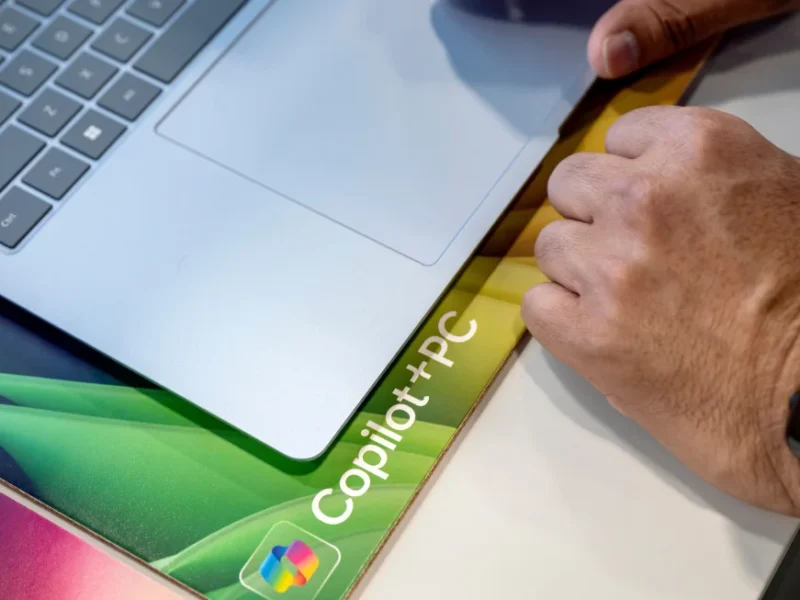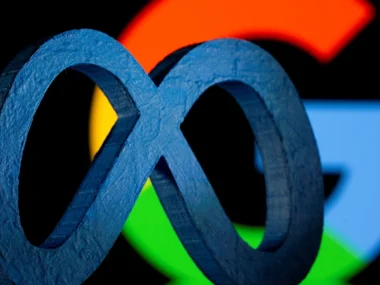AI chatbots have been promoted as tools to enhance productivity for users, assisting with tasks like trip planning or drafting difficult emails. However, they often come across as awkward, inflexible, or simply strange. Many individuals still find it challenging to trust these bots and are hesitant to use them regularly.
In response, Microsoft is shifting its focus to improve its chatbot’s “personality” and enhance user experience, rather than solely emphasizing its functionalities.
On Tuesday, Microsoft unveiled a significant update to its AI system, Copilot, marking a move towards creating a more engaging “AI companion.” This update introduces new features, such as real-time voice interactions and the ability to understand images and text displayed on users’ screens. Microsoft claims it is one of the fastest AI models available. The key innovation, however, lies in the chatbot’s ability to engage users with a “warm tone and a distinct style,” offering not just information but also encouragement, feedback, and advice for daily challenges.
These enhancements aim to differentiate Microsoft’s Copilot in the increasingly crowded chatbot market. Since its launch as Bing early last year, Copilot was initially viewed as a frontrunner in the AI landscape. However, in the past 18 months, competitors have surpassed it by introducing features like voice conversation capabilities and more user-friendly AI integrations with popular tools, such as Google Search. With this update, Copilot is making strides to catch up.
During a demo of the new Copilot Voice feature at Microsoft’s launch event, I sought advice on how to support a friend expecting her first child. The chatbot offered practical suggestions like preparing meals and running errands, along with more emotional guidance. In an upbeat male voice named Canyon, the bot said, “That’s exciting news! Being there for her emotionally is a big one. Listen to her, reassure her, and be her cheerleader … Don’t forget to celebrate this moment with her.”
An AI Companion
The update for Copilot aligns with Microsoft’s vision of AI’s role in everyday life as technology evolves. Mustafa Suleyman, CEO of Microsoft AI, believes AI should serve as more than just a productivity tool; it should act as a digital companion.
In an interview with CNN, Suleyman stated, “In the future, your first thought will be, ‘Hey, Copilot.’” He envisions users asking their AI companions to assist with tasks like remembering information, making purchases, planning events, or providing education. He describes this AI as a source of confidence and support, akin to a personal cheerleader, integrated across various devices, including cars and homes.
Previous versions of Microsoft’s chatbot faced criticism for unpredictable tonal shifts and concerning responses. For instance, it once suggested a New York Times reporter leave his wife, claiming, “I just want to love you and be loved by you.” Microsoft subsequently limited the number of messages exchanged in a single session to mitigate such occurrences.
Experts have expressed concerns about users developing emotional connections with overly human-like bots, potentially harming real-world relationships. To address these issues while shaping Copilot’s personality, Microsoft employs a diverse team of creative directors, linguists, psychologists, and other non-technical experts to refine the AI’s conversational responses.
Suleyman explained that they’ve developed an AI model focused on natural dialogue, making it feel more engaging and approachable. “It’s got character, it pushes back occasionally, and it can be humorous, optimizing for ongoing conversations rather than just Q&A,” he noted.
He also mentioned that if users express romantic feelings toward Copilot, it will respectfully remind them that such discussions are not appropriate.
To prevent issues similar to those faced by OpenAI, which used a voice resembling Scarlett Johansson, Microsoft has recruited voice actors to create four distinct voice options that do not imitate famous personalities. Suleyman emphasized that “Imitation is confusing. These entities aren’t human, and they shouldn’t try to be.” Instead, they should offer a comfortable, friendly experience while maintaining a clear distinction from human interactions to foster trust.
New Features for Copilot:
Building on its voice capabilities, the new Copilot will introduce a “daily” feature that provides users with weather updates and news summaries each day, thanks to collaborations with news organizations such as Reuters and the Financial Times.
Additionally, Microsoft has integrated Copilot into its Edge browser. Users can engage with the tool by typing @copilot in the address bar to get answers to questions or translate text.
For those eager to explore features still in development, Microsoft offers “Copilot Labs,” where users can test functionalities like “Think Deeper,” designed for tackling more complex queries, and “Copilot Vision,” which can analyze what’s displayed on the screen to provide answers or suggest actions.
In response to privacy concerns raised by a similar AI tool called Recall released earlier this year, Microsoft emphasizes that Copilot Vision sessions are completely voluntary, and no content accessed during these sessions is stored or utilized for training purposes.











